Singapore team deployed to fight forest fires in Indonesia returns
SINGAPORE – The Singapore team that went to help battle forest fires in Indonesia today (Oct 24) returned to Singapore after two weeks, having discharged more than 400,000 litres of water and doused more than 50 hotspots.
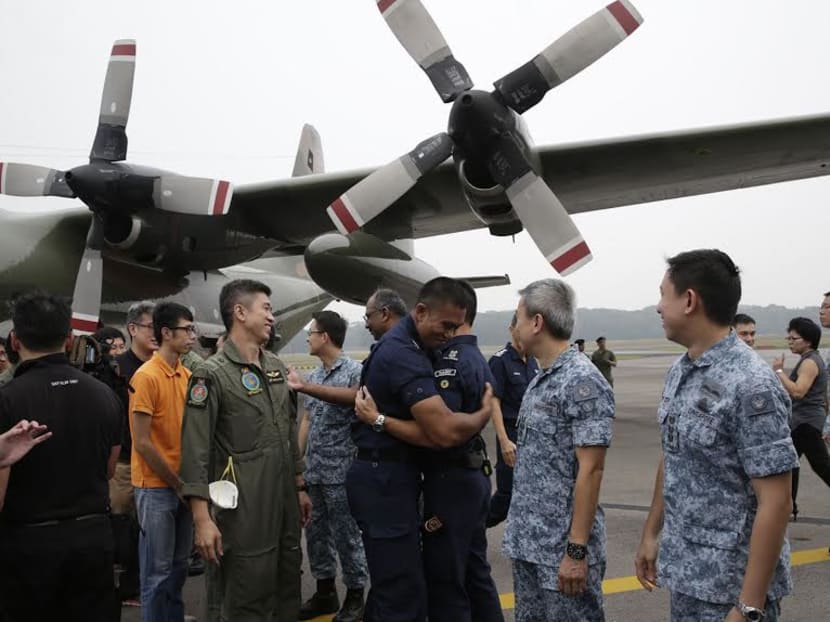
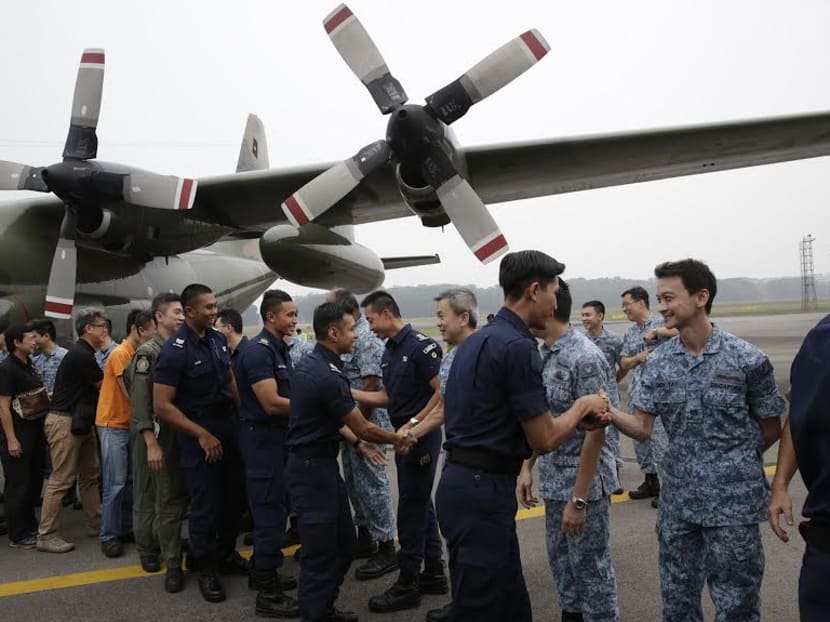
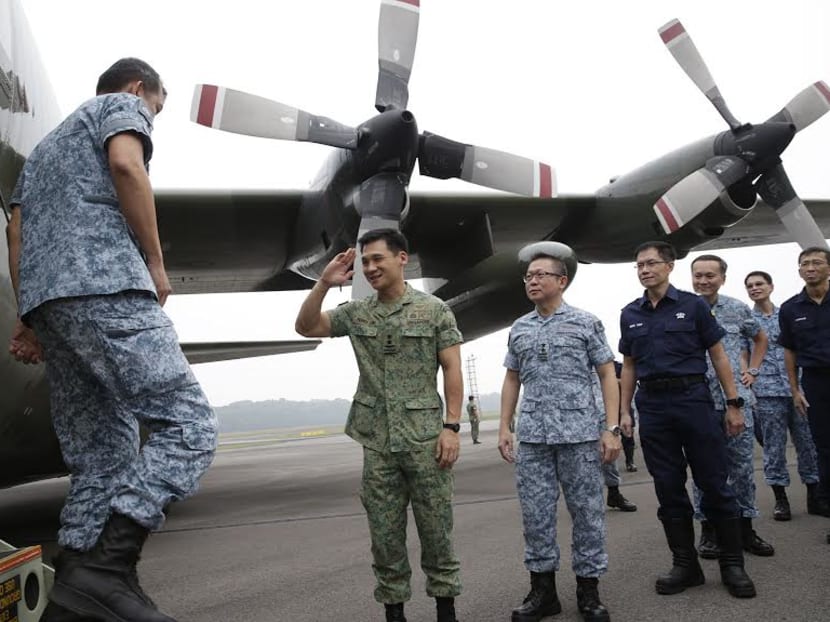

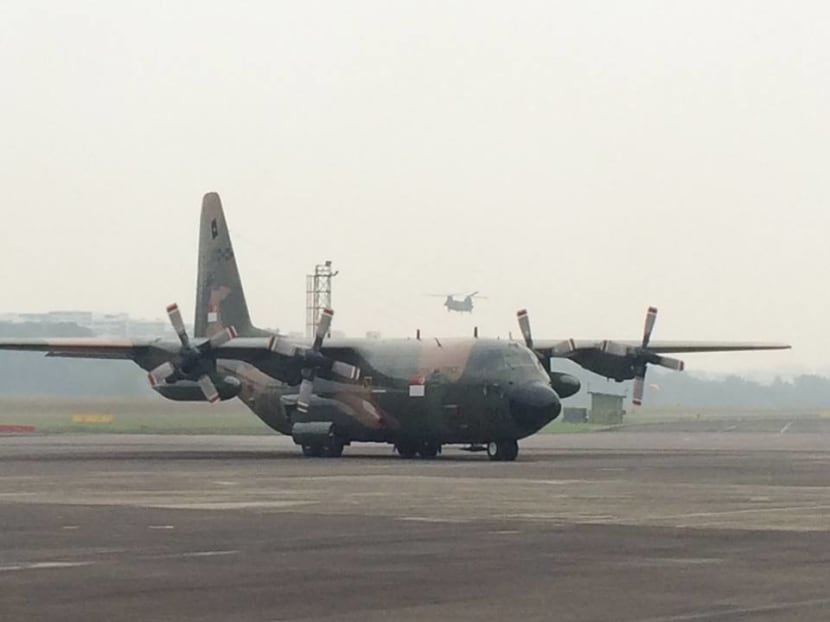
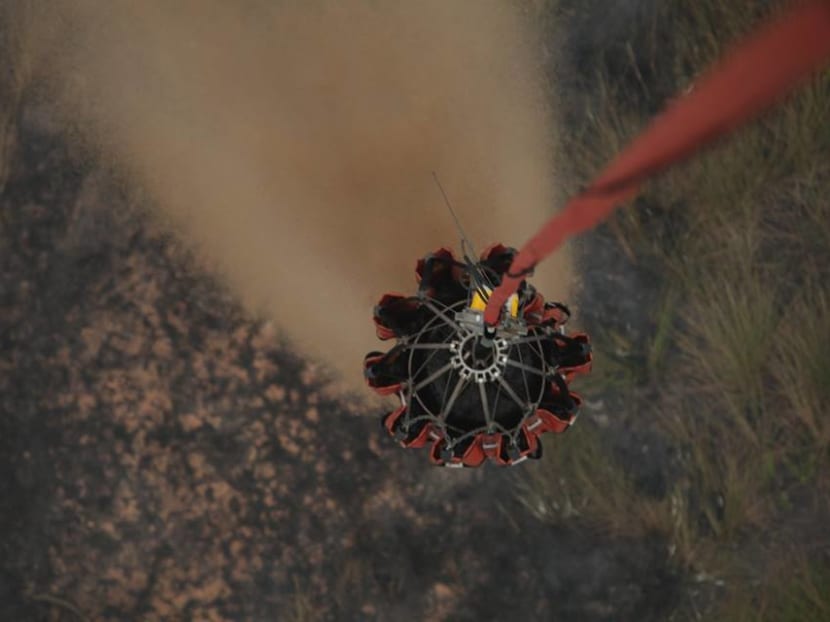
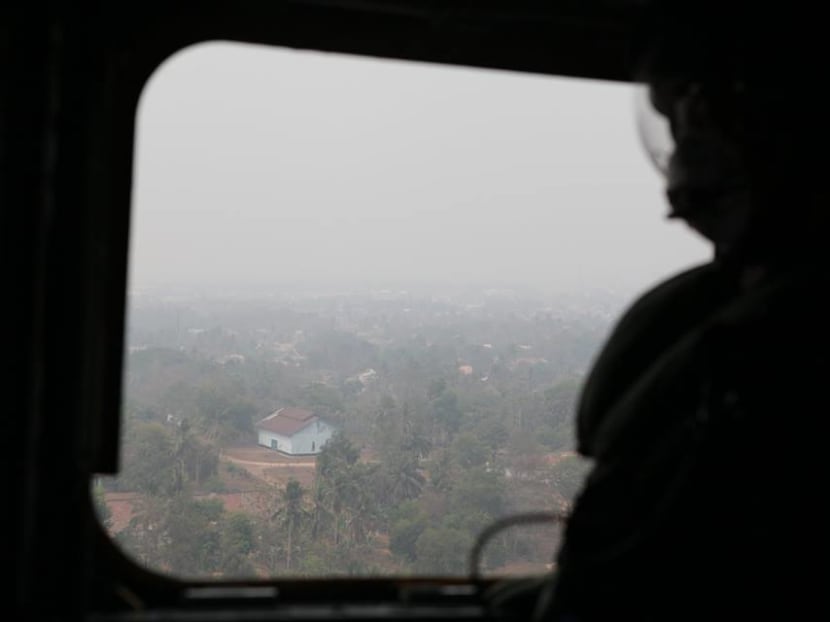
SINGAPORE – The Singapore team that went to help battle forest fires in Indonesia today (Oct 24) returned to Singapore after two weeks, having discharged more than 400,000 litres of water and doused more than 50 hotspots.
Two C-130s, carrying Singapore Armed Forces (SAF) and Singapore Civil Defence Force (SCDF) personnel and their equipment returned from Palembang, Indonesia at about 3.30pm. They were received at Paya Lebar Air Base by SCDF Commissioner Eric Yap, Chief of Defence Force Major-General (MG) Perry Lim as well as senior SAF officers including Chief of Air Force MG Hoo Cher Mou.
Defence Minister Ng Eng Hen expressed his “deepest thanks to our men and women who overcame difficult conditions on this mission to put out hotspots and help the surrounding villages”. In a Facebook post, Dr Ng noted that low visibility was one of the key challenges faced by the team as they conducted water bombing operations in Palembang.
Air Crew Specialist 2WO Vijaikumar, 41, pointed to the challenges in terms of "visibility, size and amount of fires that were present". "When we landed there, visibility dropped to below 1 kilometre at times," he said. Adding that the underground heat was "quite intense at times", he said the team could feel that heat while they were setting up the bucket together with the SCDF and rigging team.
Mission Commander LTC Vincent Tan, 45, said: "I think our team were very well-trained. When they went in, they knew what they were doing. ... they displayed a very high level of professionalism - they went out, they were ready to fly every day when the visibility allows. So when they went in, they gave their fullest, they worked together seamlessly and they got the job done."
The SCDF said in a press release: "This deployment has validated the SCDF’s operational readiness and preparedness. The experience gained will be invaluable for any future operations."
At a farewell event yesterday at Palembang Air Base, Deputy Head of the Indonesian National Board for Disaster Management Harmensyah thanked the SAF team for their contributions. "It was absolutely a difficult task and assignment for us, but you all have done a great job. Your contributions really count," Mr Harmensyah said. "On behalf of the Government of Indonesia, and representing the Head of BNPB, I would like to express my sincere gratitude and deep appreciation for the contribution and hard work of the team and crew from Singapore who have worked hard for these last two weeks of the fire-fighting."
Dr Ng added on Facebook: “Indonesian leaders have realised that what is key in preventing this environmental disaster from recurring is prevention and enforcement.” He said Indonesian Coordinating Minister for Political, Legal and Security Affairs General Luhut Pandjaitan had shared how Indonesian President Joko Widodo “stood at ground zero and saw for himself the flames bursting from the peatlands below”.
Dr Ng said Mr Joko Widodo has suggested having pre-constructed irrigation tunnels that can flood the peatlands when needed.
“I applaud the President’s ideas and initiatives. The industrial scale of this disaster – millions of hectares burning – requires a systemic, deliberate and multi-prong response to be effective. There is no shortage of expertise, both regional and international – that can be brought to bear on how to prevent or put out such fires, if requested,” said Dr Ng.
He also stressed that companies that own or use the land must take responsibility.
“Indonesia recognises that they have a commitment to international agreements to ensure that they deal with the haze which has affected the physical and economic well-being of other countries, including theirs.
“The commercial entities that benefit from the burning must be pressured to change, by law and penalties. These companies must put in place measures to prevent fires from starting, and if that fails, infrastructure to limit the burning,” said Dr Ng.
While the haze impacts the lives of residents in the region in many ways – from school closures to tourist arrivals – Dr Ng said that to him, Indonesia’s “strongest motivation” for dealing with the haze “must be a moral one – the health of hundreds of thousands of their own citizens are affected by this man-made disaster”.









